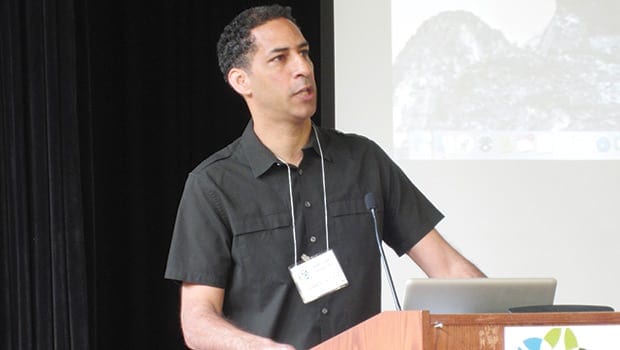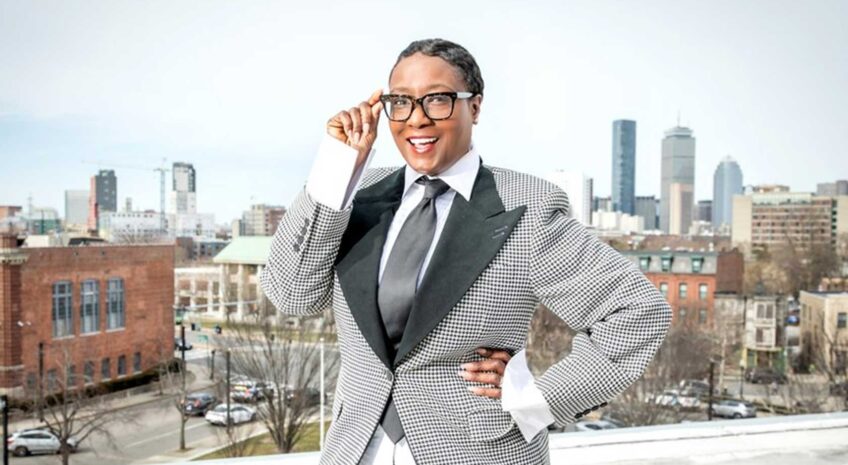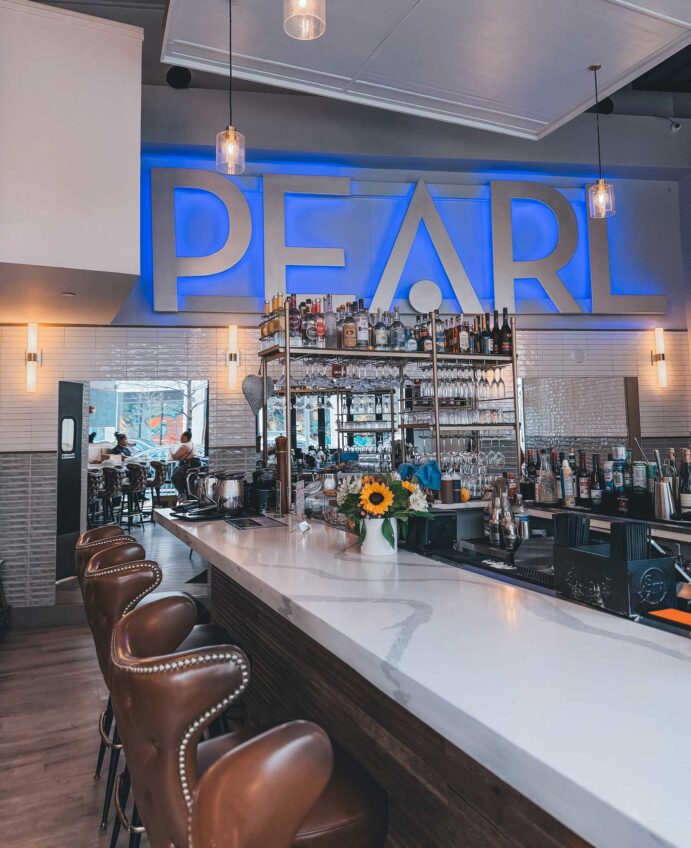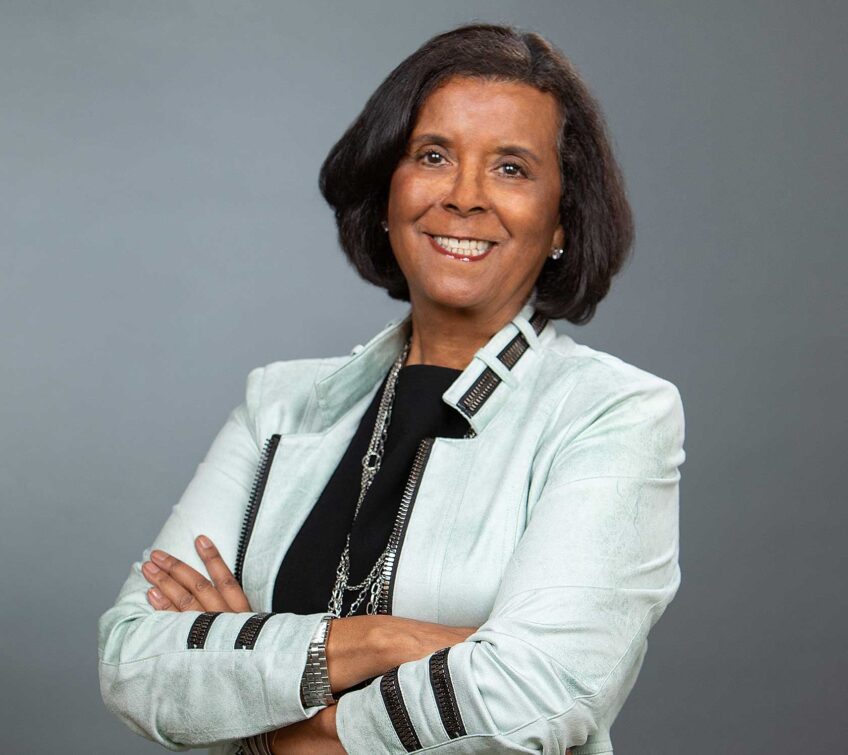
When socially conscious business activists first organized the Sustainable Business Conference in 1990, environmental causes and business were widely seen as being at odds. Twenty-five years later, businesses increasingly are seeing sustainable practices as key to their survival.
The Sustainable Business Network of Massachusetts held this year’s event May 15 in Cambridge. The event brings together like-minded businesses that have created what it means to be a sustainable business — namely making an effort to build a stronger local economy through a network of environmentally and socially conscious.
Boston’s sustainable enterprise environment has always been on the forefront and provides a good example of how urban-based businesses can led the way in environmental and green awareness. People might expect such things in places like Vermont or California, but Laury Hammel, Sustainable Business Network founder and executive director says the best place to look is right here, throughout Boston’s urban centers.
And Cambridge, where the Sustainable Business Network is headquartered, is at the heart of it.
As the conference kicked off at Lesley University in Cambridge, City Councilor Leland Cheung was on hand to emphasize the impact the Sustainable Business Network and the ideas it supports has had on the city it calls home.
Plastic bag battle
Cheung referenced legislative efforts such as the long battle to ban the use of plastic bags in retail stores in Cambridge, but also the overall city efforts to turn a close eye on how the city’s local businesses can provide more of what the city needs without having to turn elsewhere.
“Cambridge is a place that I think exemplifies the value of understanding that local businesses who think sustainably, who treat their workers with equity and with fairness, are the heart of our community and are the heart of what make us a sustainable city,” Cheung said.
Cheung says it is extremely important for cities and political leaders to promote buying local.

Author: Martin DesmaraisSteve Grossman
Steve Grossman, former Massachusetts Treasurer and current executive director of the Roxbury-based Initiative for a Competitive Inner City, which supports inner city entrepreneurs, delivered a keynote address about how his organizations believes in the importance of sustainable business in urban areas.
In the 20 years the organization has been around, it has supported inner city business that have created about 80,000 jobs — an obvious boost to the local economy.
In addition, the organization’s recent Inner City Capital Connections program has pumped more than $1 billion into growing inner city businesses, creating another 5,000 jobs.
All these initiatives support a vision of growing inner city businesses in urban areas and boosting the economy around them.
“We want people to live to work to play and to stay in our inner cities and it is the small businesses that make that happen,” Grossman said.
Value added
Grossman also dismissed the notion that sustainable efforts are not good business or cost companies too much money.
“Companies can actually do things that are in line with their commitment to sustainability and actually improve their bottom line and improve their profitability. We don’t have to make choices between sustainability and leadership in bold, imaginative, innovative and pioneering ways, between doing the right thing and profitability because the fundamental concept of shared value is you can do both,” Grossman said.
It is Grossman’s hope that piggybacking on the efforts of organizations like the Sustainable Business Network allows the Initiative for a Competitive Inner City to grow the sustainable business movement.
“I hope, in a small way, what the Initiative for a Competitive Inner City does is part and parcel of a sustainable, nurturing, collegial and collaborative effort to build up small businesses to build them up in a sustainable way to level the playing field so that women, people of color, immigrants, veterans and people with disabilities all believe that they can be part of a growing, sustainable, nurturing and healthy economy and healthy society,” he added.
Glynn Lloyd, long-time Boston champion for sustainable initiatives that impact Boston’s inner city areas and founder of Roxbury-based City Fresh Foods and City Growers, also spoke about how he has seen his efforts thrive in the sustainable business movement.
With City Fresh Foods, a $9 million provider of locally-sourced, healthy meals to Boston-area childcare organizations, schools and elder-care facilities, and City Growers becoming a self-sustaining urban farm, Lloyd is witness to the value and power of sustainable business ventures.
“We have to really do something here to make what I call ‘transformative changes’ — really shifting the paradigm,” Lloyd said. “I actually think it is the people in this room that are actually going to have to do the change. It is the social entrepreneurs that are really going to push the envelope here. … And a lot of us are already doing it, but I want to push us and say, ‘How far are we pushing it?’”
Looking ahead
While city officials and government officials are important actors in sustainable business development, Lloyd does not believe we can just wait around for this to happen. Social entrepreneurs have to make it happen by leading the way and getting officials to follow suit.
Lloyd, who recently became managing director of the Boston Impact Initiative, an organization that supports community organizations through loans and grants, as well as local businesses with equity investments, advocates for a new approach to wealth creation in the city’s urban communities.
“Can we start building new systems where local folks are taking the lead, where we are doing it in a way which is sustainable and we are doing it in a more equitable way where folks are sharing the ownership and decision making? To me that is part of the new economy. That is really how the transforming will happen,” he said.
The day-long Sustainable Business Conference also featured breakout sessions on topics including “Building a Sustainable Business: The Power of a Green Culture,” “Pollinating Sustainable Business through Community Capital” and “50 by 60: A New England Vision for Food.”
In addition, the conference included an open space technology action planning session, sustainability workshops and a local food roundtable discussion.


![Banner [Virtual] Art Gallery](https://baystatebanner.com/wp-content/uploads/2024/04/Cagen-Luse_Men-at-store-e1713991226112-150x150.jpg)



